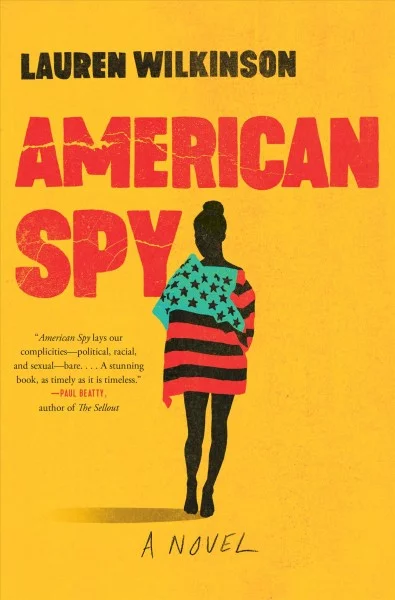A Book I Read: American Spy by Lauren Wilkinson

American Spy offers a Pan-Africanist twist on the Cold War spy novel.
Lauren Wilkinson's 2019 debut novel was critically acclaimed and a few best reads lists. It's been on my list to read since my husband snagged a copy of the book in paperback. I finally got to it this month to close out my very modest 2022 reading goal of 14 books.
American Spy is about Marie Mitchell, the daughter of a Martinican mother and Black American father and her relationships both to the people in her life and the institutions that shape Black life globally.
Wilkinson writes the novel as a series of journals for she's writing to leave for her two sons while she goes off to settle a score. It's a spy thriller, but also a work of historical fiction. I don't read much from either genre, so I'm unfamiliar with the tropes and conventions of either. Keep that in mind as you read the rest of this post.
Marie is a child of the civil rights era who works for the FBI in the 1980s and early 1990s. She's dissatisfied with her work and her career progress as an FBI agent. When she was recruited for an apparent CIA assignment that requires her to compromise the president of Burkina Faso (Thomas Sankara), she jumps at the chance. As she gets pulled deeper into her work, she uncovers some uncomfortable truths about who she's working for.
There's some history to know about here.
Sankara came to power in a 1983 coup d’état against the leadership of Upper Volta. Upper Volta is a former French colony in western Africa that secured independence in 1960.
In 1984, Sankara renamed the country Burkina Faso, shaking off its colonial name. Burkina Faso, according to most sources I've read, means ‘Land of Incorruptible People.’
Sankara, like many leaders of newly-decolonized African nations, was a proponent of Pan-Africanism, or the idea that peoples of African descent share a common struggle against colonialism and racial oppression. Under Sankara's leadership, Burkina Faso's literacy rates improved. Infant mortality rates fell. The number of women in leadership positions rose.
He was also against imperialism and colonialism, likely because he lived through both and saw how it under-develops people and nations. He was sometimes called Africa's Che Guevara
, for his work towards the goal of achieving Burkinabé self-sufficiency.
Back to the novel: Marie finds herself deeply attracted to Sankara, despite the fact that she was hired to compromise him and undermine his presidency. Perhaps she's even in love with him. The Sankara of the novel is deeply committed to Burkinabé independence, and rooting out corruption. He speaks truth to power. He eschews the trappings of other political figures. Most of all, he speaks of improving the material conditions of his people. Marie can't help but admire the good he's done, even as he shows some anti-democratic tendencies.
I think Wilkinson captures the tension and conflicts of being African-descended and American. You want to believe in the possibility of a government that can improve the material conditions of Black people, but you're deeply skeptical about whether it can ever come to fruition. You've seen how the system does not work for people like you, both in your home country and abroad. You also see post-colonial African leaders who start off with good policy, but turn to despotism to preserve their own lives and power in the face of destabilization efforts from within and abroad.
That particular conflict never gets settled. Neither does the other major conflict of the novel. Instead, the Wilkinson's ending seems to set us up for a sequel. I hope she's working on it.
Also see:
Other reviews of American Spy.